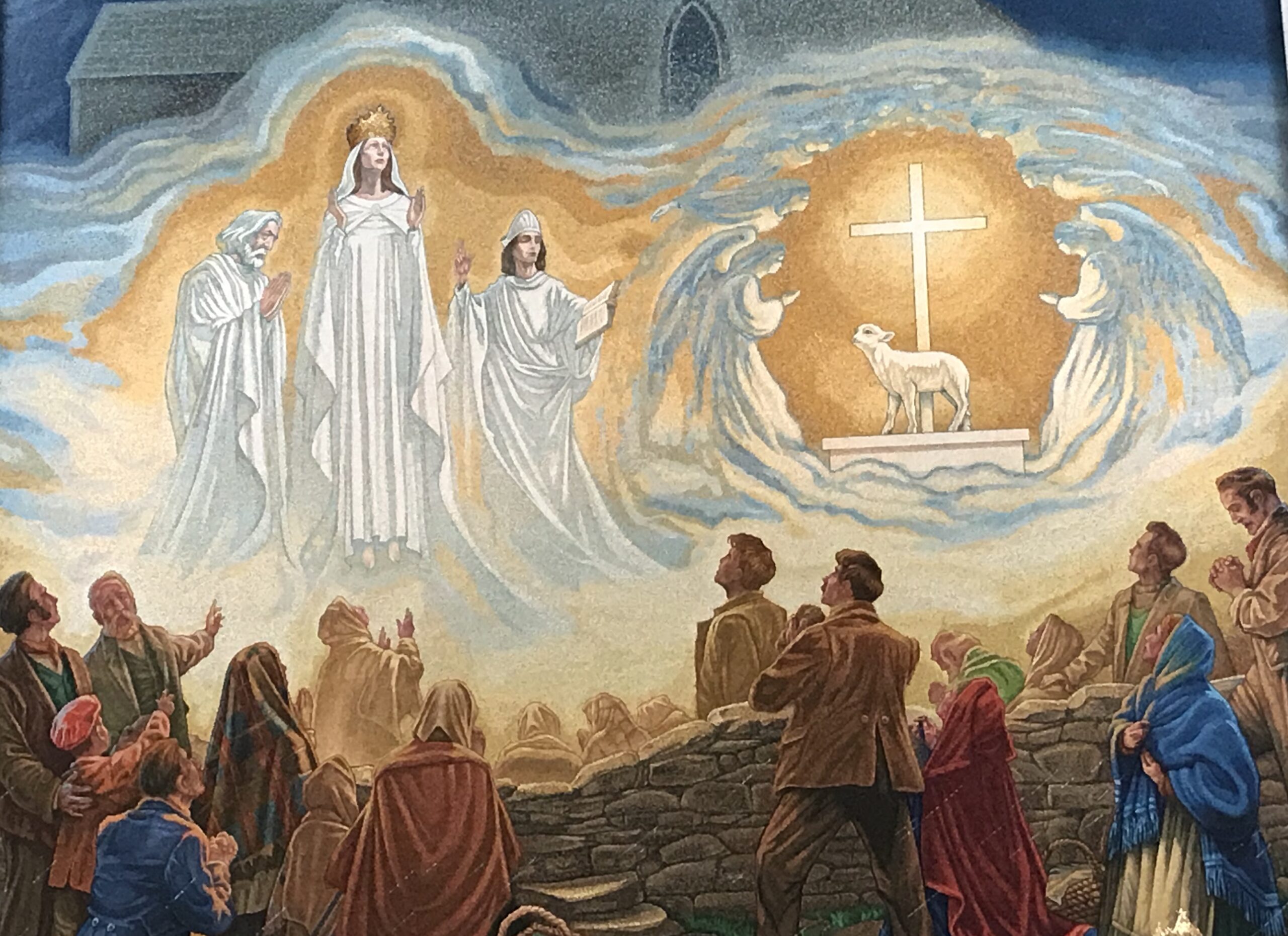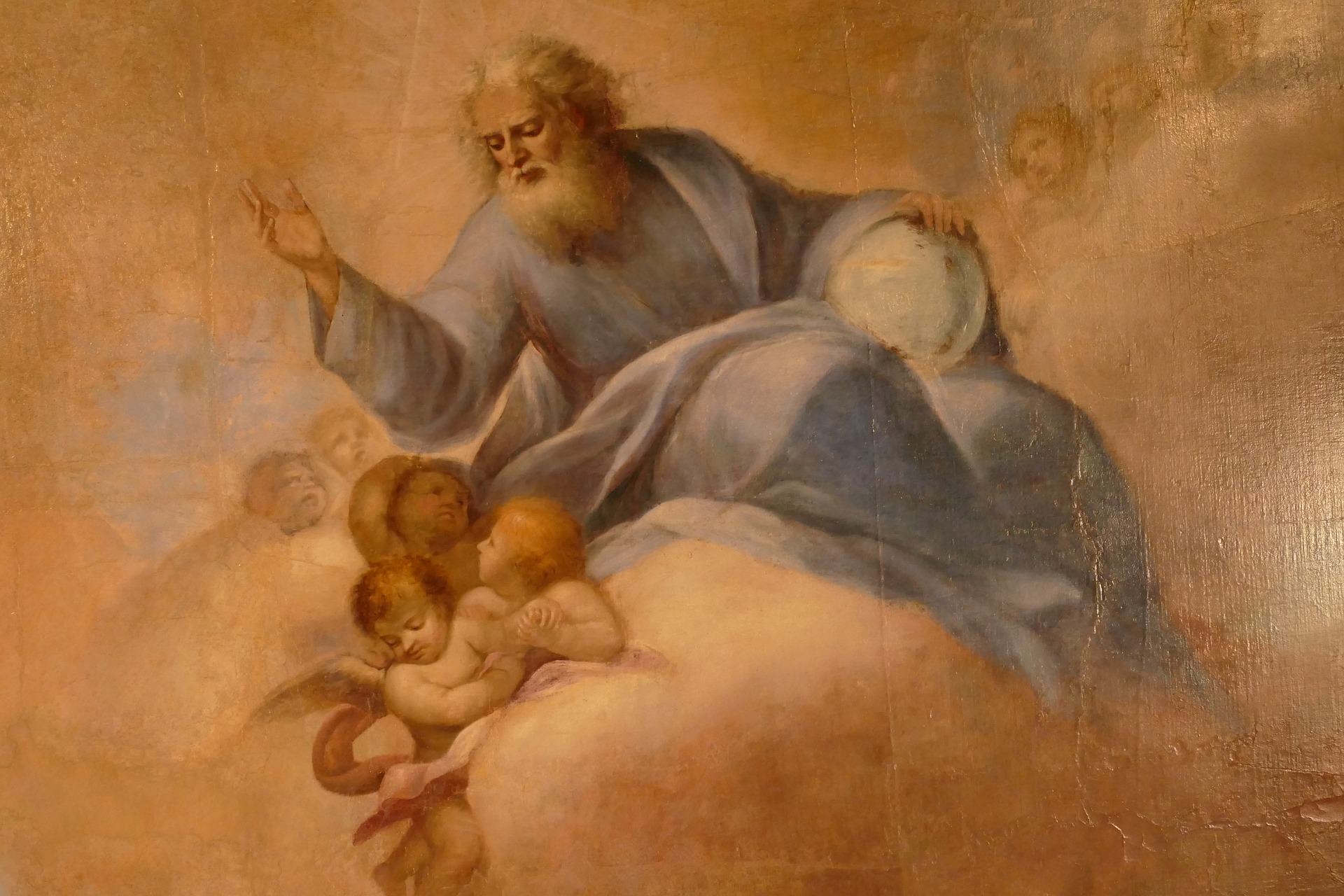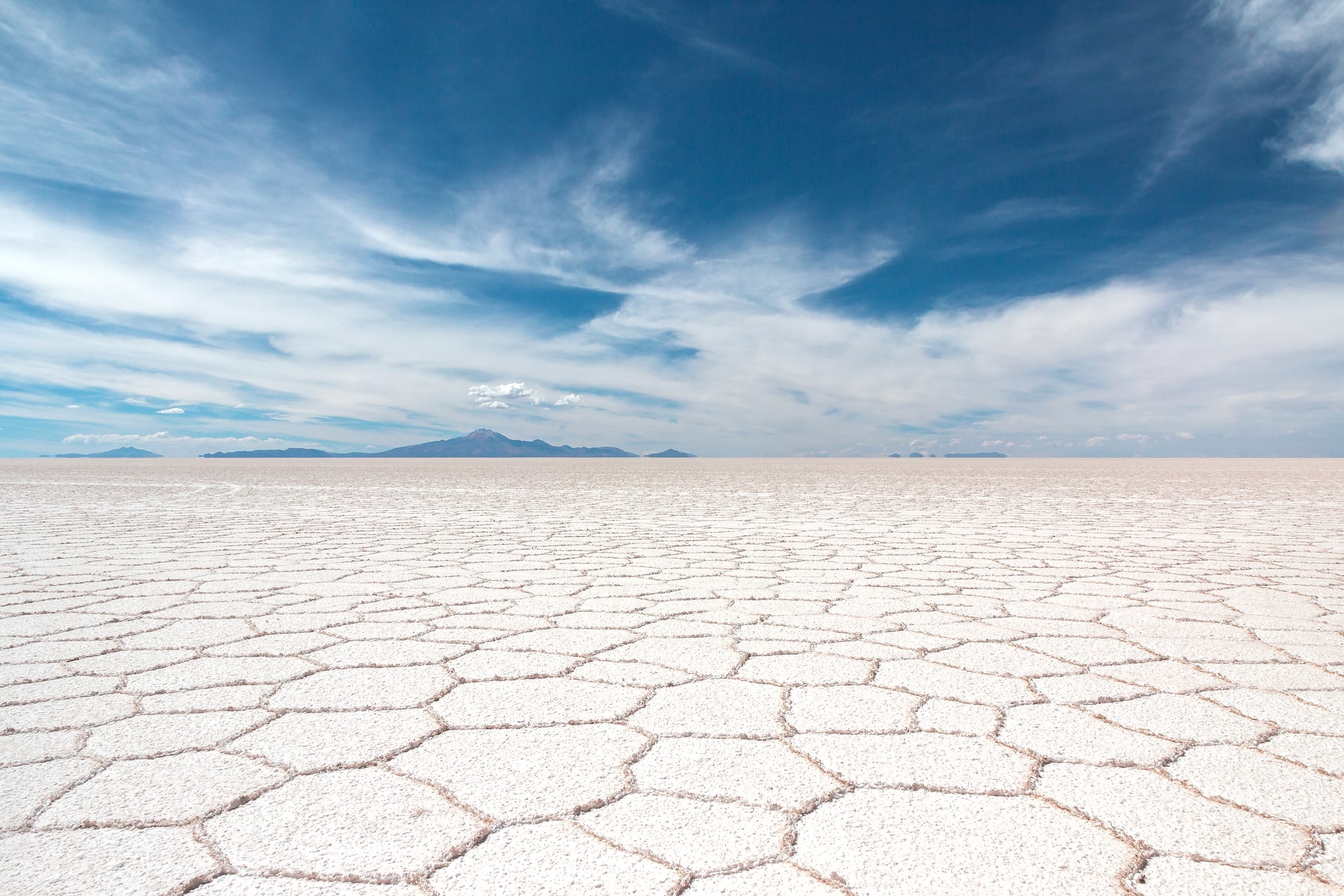Declare The Works of God And Give Thanks
Raphael called the two of them aside privately and said to them: “Bless God and give him thanks before all the living for the good things he has done for you, by blessing and extolling his name in song. Proclaim before all with due honor the deeds of God, and do not be slack in thanking him. A king’s secret should be kept secret, but one must declare the works of God and give thanks with due honor. (Tb 12:6-7)
I recently returned from a trip and shied away from writing about my experiences because this isn’t a travel website nor is it about my personal life. But after hearing the words of St. Raphael, the Archangel known for healing, it became clear that it’s not about me, but about the fingerprints of God and recognizing Divine intervention in even the most ordinary of circumstances because He loves us so much.
After years of talking about a visit to Ireland, I finally sat down and planned it. I had heard about Knock, a place of apparition of the Blessed Virgin Mary. I didn’t really know much about Knock, but felt a burning desire to go and knew I was being called there. As with all pilgrimages, traveling there had its own ordeals, but our arrival was met with a sense of peace.
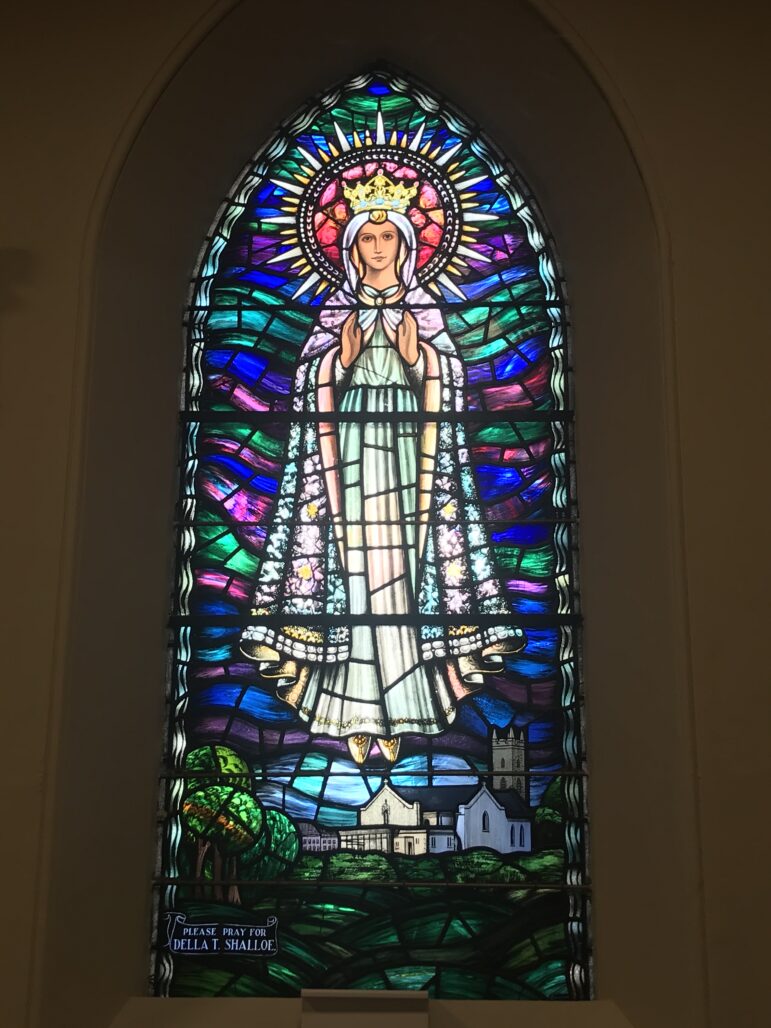
On our first morning, we headed for the Reconciliation Chapel. I knew the Holy Spirit was present because the priest understood things about me that we hadn’t even discussed. He recommended that we attend the 3:00 Healing Mass at the Basilica and that we visit the museum. “Do it today,” he said. At the healing Mass the priest called each of us by name and did the anointing and all the prayers of the Sacrament of the Sick. Having three sacraments in one day was so amazing we didn’t even notice our jet lag.
I had a whole list of things to do at the Shrine, but the priest told us to go to the museum so we went. It was like viewing a time capsule from 1879, and at the very back of the museum was a large binder full of hand-written letters in beautiful European script. For some reason I sat down to read the letters. Some kind soul had transcribed in type-written form all 600 of them. People were pouring out their hearts about illnesses, accidents, and deformities. In every letter the person described either rubbing a piece of mortar from the gable wall, or touching the wall, or putting the mortar in a glass of water and drinking the water. All of them were miraculously healed. 600 verified miraculous healings between 1881-1884. I had no idea this apparition site was a place of healing –it’s the Lourdes of Ireland. We saw photographs of many crutches left at the gable wall because people had been healed. I inquired about the mortar and was told that the portion of the gable wall where Blessed Mother, St. Joseph, St. John the Evangelist and the Lamb of God appeared had been incorporated into the outer wall of the apparition chapel and we could go touch it. Had we not started the day with Reconciliation, we would not have known about the healing Mass, nor discovered the important secret revealed in these letters.
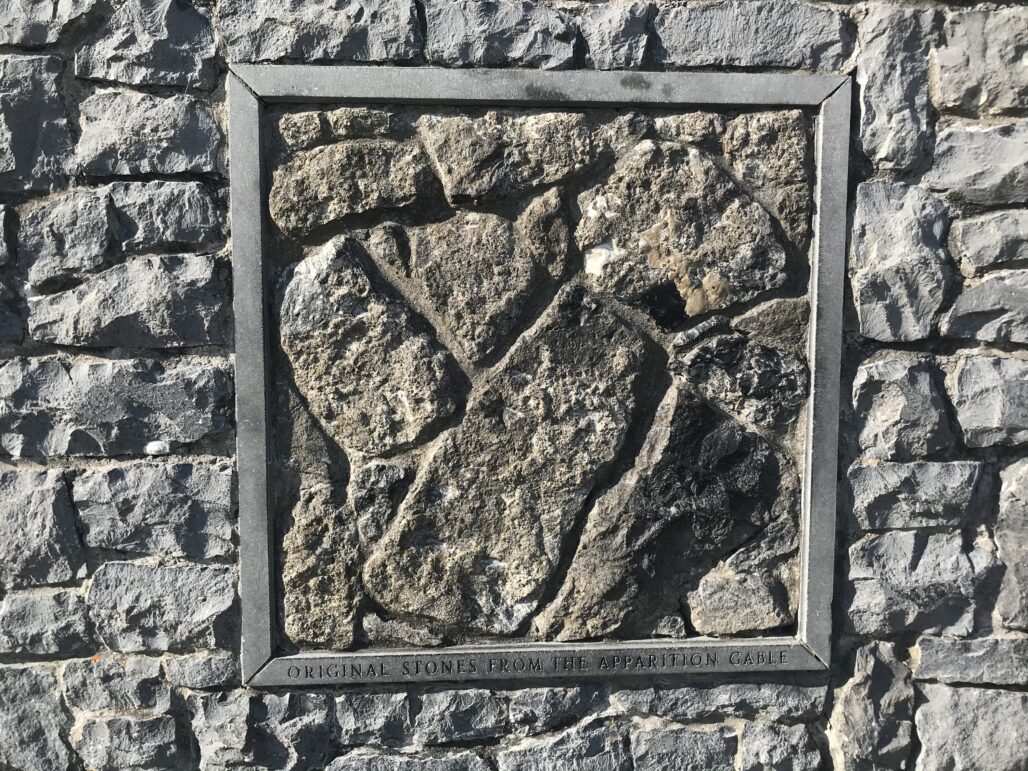
A few days later we booked a 13 hour bus tour that brought us from Dublin to the West Coast of Ireland, the Cliffs of Moher, Galway, and the rural countryside. Once again, the inconveniences of life turned out not to be coincidence. Upon arriving at the tour bus stop, we joined a crowd of over 300 people booked on a tour bus that accommodated 63. Our tour guide explained that normally there was a high no-show rate, but they were calling in four other buses to handle the demand. Unfortunately, although we presented our confirmation and payment receipt we were not on her list. Unflustered, she told us to ride with her to the last pickup point and hopefully people wouldn’t show up — “Don’t worry. We’ll get you sorted out.” We started praying to our guardian angels that four people would change their minds about taking a tour. Amazingly, four didn’t show up so we were let back on the bus. The only seats left were the front row “reserved” seats which is exactly where I wanted to sit. I couldn’t have planned it better.
On the three hour ride back to Dublin, the friendly couple behind us shared their adventures in Spain and Morocco and how a layover in Ireland had turned into a spontaneous five day vacation extension. We all agreed that seizing the present moment instead of always planning for some distant future was a much more fulfilling approach to life. I settled in to my 15 decade rosary while reveling in the beauty of this marvelous green country with its endless rolling hills. At the 7th decade, the man behind us dropped his phone. Something in his wife’s panicked, “Robert, are you okay?” made me turn around. He was definitely not okay – he was having a stroke. In the middle of nowhere. He made a convulsive grimace and then his head fell to the left, his mouth slack open, his eyes unfocused, his face like yellow wax. His wife screaming his name and thumping his chest with no response. No rise and fall of his chest – no breath. No movement or recognition in the lifeless stare. Desperate to help them, I didn’t even have an aspirin. But I had my rosary – the simple plastic rosary that I had touched to the gable wall at Knock. I held it up and told her I was praying for him. I knew he was dead. She knew he was dead. The tour guide knew he was dead. I prayed anyway as the bus pulled into a rest stop. Then suddenly he coughed so hard his arms and legs flailed about. When he was able to speak, it was obvious he had no idea what had happened to him and sought to reassure his wife that he “was just coming down with something but was fine.” Miraculously he was able to walk down the steps of the bus and speak in coherent sentences.
His wife and the tour guide tried to convince him to go to the hospital while he continued to insist he was fine. Not wanting a repeat episode on their flight to Los Angeles the following day, I asked the Holy Spirit to give me the words to encourage him to make a better decision, and, as always, He responded: “Robert, I know that as a man you are expected to be the strong one, the one who takes care of the family. You want to be in control, but today that is not the way to be strong or take care of your family. Look at your wife. She is terrified. She will have no peace until she knows you are okay. For her sake Robert you have to be strong in a different way. Sometimes being a man means you must fall on your sword and do something you don’t want to do, but you do it for the good of your wife and family because you love them. Today is one of those times.” He agreed to go to the hospital.
Thinking back on this trip, I see the fingerprints of God everywhere, in every inconvenience, in every decision, in every path to which I was guided. None of this happened on my own. He guided me to Confession. The priest was guided to instruct me to go to the museum. With all the beautiful art around me, I sat down to read letters. We discovered the gable wall. We somehow wound up in the front of the bus with this couple and I had my rosary with me. God intervened and restored this man to life through the intercession of Our Lady and many witnessed it. The miracles of Knock continue. Praise be Jesus now and forever.
P.S. –I prayed for all of you while there and lit several candles. The last candle was for anyone I have ever met or ever will meet, and anyone who has ever or will ever pray for me or my intentions that they be filled with an abundance of joy in this life and especially in the next. So if we have never met and you would like the blessing of abundant joy from God through Our Lady of Knock, you know what to do: “Hail Mary full of grace …… ” And for those non-Catholics who do not yet know the love of Our Blessed Mother, “Our Father Who Art in Heaven …..”
P.P.S. – In 1879, 15 villagers in Knock saw the apparition of the Blessed Virgin Mary, St. Joseph, St. John the Evangelist, and the Lamb of God. The villagers prayed the rosary for 2 hours in the pouring rain during the apparition. The Church has investigated and found the eye witnesses to be credible. The faithful laity and devoted priests have created a beautiful Shrine of pilgrimage and retreat. Find out more at Our Lady of Knock.

